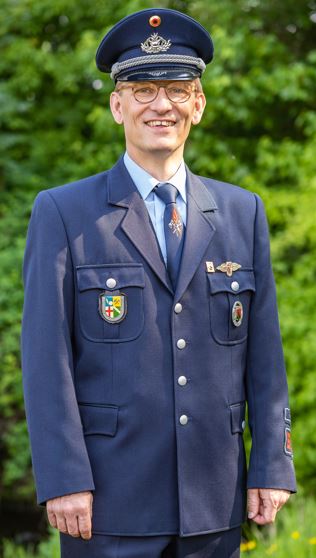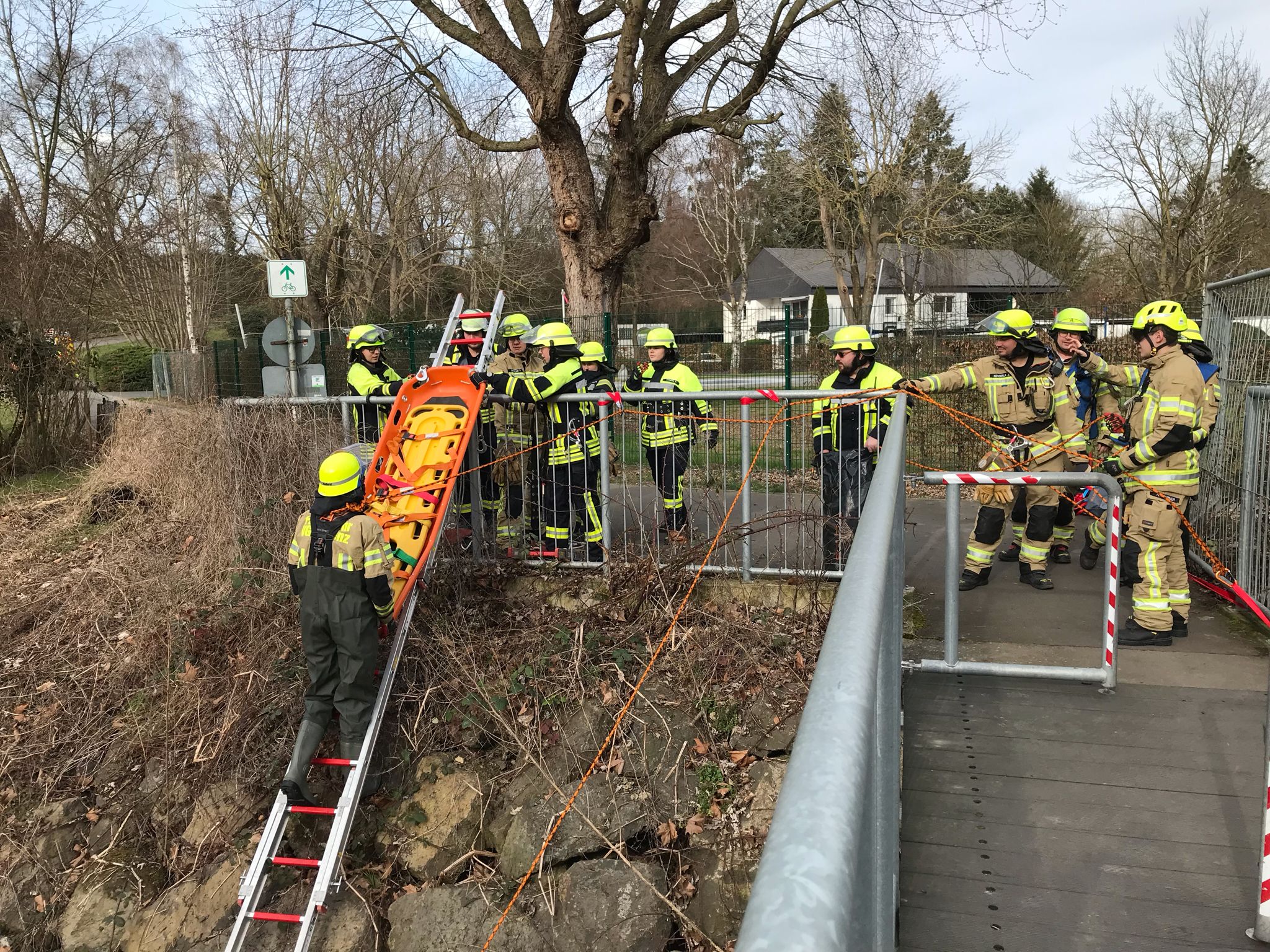08.07.2024 | Interviews
Our guest today is Dirk Schwindenhammer. He was present when the volunteer fire department and the mechanical engineering company Durwen from Plaidt received the “Helping Hand” award in 2018 in the “Support of Volunteering” category. The award, presented annually by the Federal Ministry of the Interior and Homeland (BMI), recognizes various aspects of community safety. We took the opportunity to ask how this came about, what has happened since then, and what other fire departments can learn from this cooperation in Rhineland-Palatinate, Germany.
 Mr. Schwindenhammer, you are the fire chief of the volunteer fire department in Plaidt. What does that entail?
Mr. Schwindenhammer, you are the fire chief of the volunteer fire department in Plaidt. What does that entail?
Dirk Schwindenhammer: To understand that, you need to know that we are part of an association of municipalities in Rhineland-Palatinate, consisting of five towns. The association is responsible for the fire department and maintains a firefighting unit in each town. Each of these units has a “chief,” and I serve in that role for the Plaidt fire department. With 6,000 residents, we are the largest community in the Pellenz region.
As chief, you’re also responsible for ensuring enough “personnel” is available. This is particularly challenging for daytime readiness. Why is that?
Dirk Schwindenhammer: This is an issue that affects all rescue organizations. In the past, people often lived and worked in the same town. Nowadays, they usually work elsewhere, and the fewer companies based in a town, the more severe the situation. As a result of this development, it is always difficult to have enough people available for emergencies during the day. Yet, I have to ensure our readiness 24/7, 365 days a year—we need to provide effective assistance at the scene within about ten minutes. The municipality has a duty to establish a functioning fire department. So, we had to come up with a way to continue meeting this obligation.
And that’s where the idea with Durwen comes into play!
Dirk Schwindenhammer: Two of our firefighters worked at Durwen. The company is a medium-sized family business that manufactures and globally distributes attachments for forklifts. The company has grown significantly in recent years and now employs 260 people. My colleagues suggested that there might be other firefighters among the employees, even if they came from other towns, and that we should ask if they would be willing to join us during the day. I thought it was a great idea and asked them to see who might be interested. They came back to me and said that ten people were interested!
That’s quite a few at once
Dirk Schwindenhammer: Yes, the idea sounded great, but it also impacts the company when ten people
suddenly leave to respond to an emergency. So, I developed a concept for how this could work and immediately involved the mayor. The concept naturally included the fact that the municipality would reimburse the company for the wages, as required by law. Then, we invited Klaus Durwen, the company’s managing director, to present the idea. Even though he had no prior connection to the fire department, he was immediately enthusiastic and agreed to participate without any hesitation. We didn’t even have to discuss it much—he was on board right away!
And how was the plan implemented within the company?
Dirk Schwindenhammer: The company’s employees now train once a month during working hours. The municipality has even stationed a transport vehicle at the company, which the Durwen employees use to travel together to the fire station during emergencies. Interestingly, some people who had no prior connection to the fire department also expressed interest. That was a great development. Of course, they first had to undergo training to participate, but these individuals are still actively involved today. The whole initiative has evolved wonderfully and continues to thrive. There’s also the aspect that young people have been drawn to Durwen because of the fire department and have started their apprenticeships there.

So, there are benefits for the company from your perspective?
Dirk Schwindenhammer: Of course, there is the administrative and coordination effort that the company has to undertake. However, the fact that people are drawn to Durwen because of its connection to the fire department is far from an isolated incident. Additionally, the company benefits from having trained firefighters, who are also certified first responders—a requirement in every workplace.
Would you consider your approach a model for other fire departments, perhaps especially in rural areas?
Dirk Schwindenhammer: I would say it depends—it can work, but it’s not guaranteed. We were fortunate that everything aligned so well. The mayor was very supportive of the fire department’s needs, and the municipality covers the costs of training and our transport vehicle, which is not a given.
So, fire departments need tailored solutions?
Dirk Schwindenhammer: I want to emphasize the importance of taking action and coming up with ideas! We’ve done a lot in recent years, not just for daytime readiness. For example, last year, we established a “Bambini” group for children aged 6 to 10. Previously, they could only join the youth fire department at age 10. By that time, most children already have other hobbies and no longer have time for the fire department. We also developed a proper onboarding process, including an information pack. Additionally, we introduced a buddy system so that newcomers, if they wish, can be guided and supported. You have to come up with something to attract new people to the fire department!